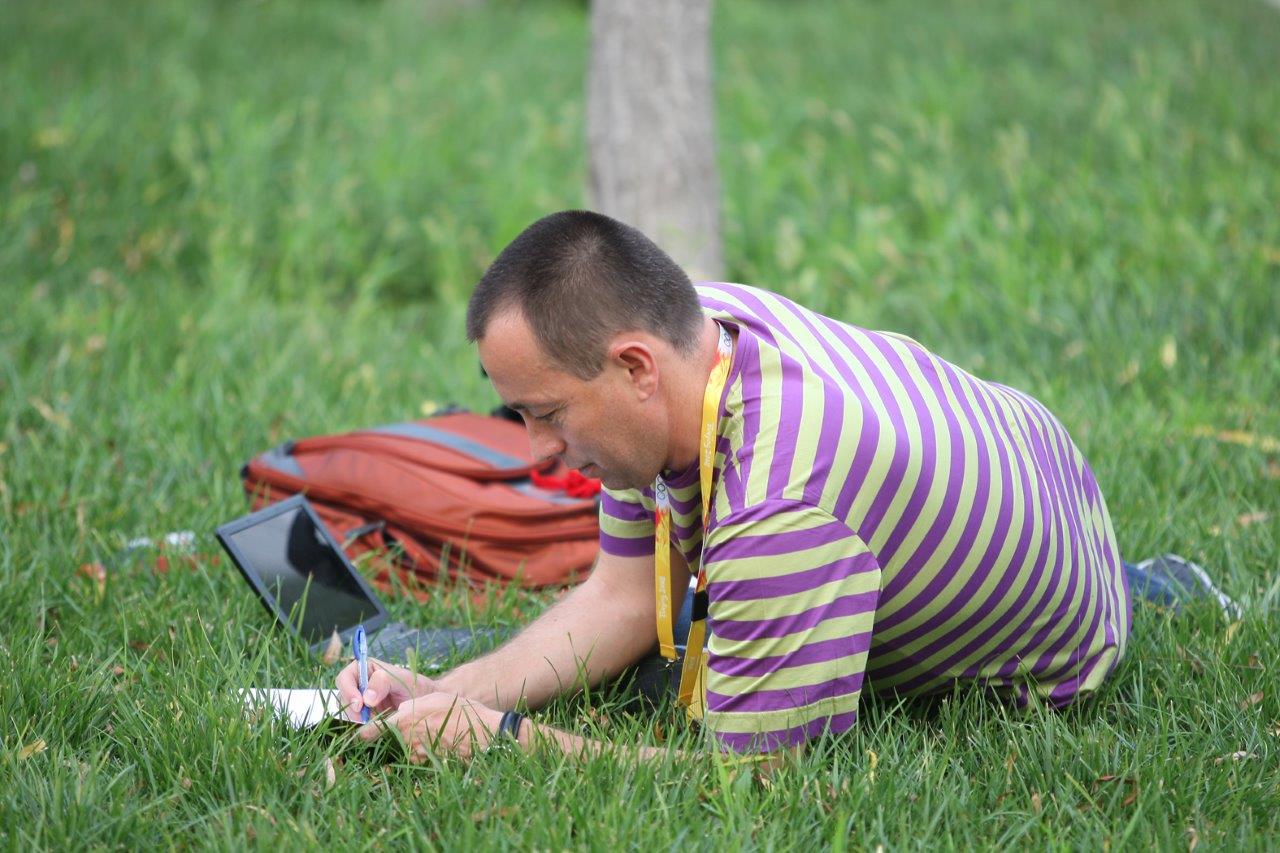Catalin Tolontan: How a Romanian Sports Reporter Turned Into a Bold Muckraker
For Romanian-born Catalin Tolontan, the principle that has guided his journalistic work for the past 15 years has been to not fear those about whom he is writing.
Nonetheless, when carrying out investigations, he doesn’t believe in individual courage, but rather in team tenacity. Mr Tolontan is one of the best-known sports journalists in Romania. He heads the Gazeta Sporturilor daily, and his investigations are published in the newspaper’s print and online editions as well as on his blog Tolo.ro. They have so far had a major impact in Romania, attracting the ire of both politicians and authorities.
One of Mr Tolontan’s latest investigations was a story about how hospitals illegally dilute disinfectants in Romania that he began to work on in spring 2016. The investigation led to the resignation of the country’s health minister. Known as the Hexi Pharma file, the case prompted the National Anticorruption Directorate (DNA) as well as the General Prosecutor’s Office to launch two lawsuits.
Mr Tolontan was also behind the case known as the Transfer File, an investigation launched by Gazeta Sporturilor back in 2006 and completed in 2014 when eight individuals, including football club owners, footballing impresarios, businessmen and football players were put behind bars. They included Gica Popescu, a renowned football player who used to be the captain of both Barcelona football club and Romania’s national football team.
Q: How did you become interested in doing investigative journalism
Catalin Tolontan: A little over 19 years ago, along with a few colleagues, I climbed to over 2,000 meters above sea level, in the Carpathian Mountains, where the Romanian Olympic training base lay. We had found out that a simple fence [for that base] had cost tens of thousands of dollars. What we then published was confirmed by the Romanian Court of Accounts. Back then, prosecutors didn’t deal with such big corruption cases; so the minister [in charge of this case] and his deputies escaped unpunished while some lower ranking officials were found guilty.Almost two decades after, things are no longer the same. The minister of youth and sports, Monica Iacob Ridzi, was sent to prison following an investigation by Gazeta Sporturilor, and two other ministers are under investigation and at risk of being sent behind bars for five years.
Nonetheless, I think that the success of an investigation is not reflected in how many people quit or are prosecuted, but in how much the general public knows about the forces that model their life.
Q: What do you think is the biggest hidden or ignored problem in the media right now? What should we uncover, and cover as journalists, about our own field?
Catalin Tolontan: One of the biggest problems is that we started to accept the abnormal as normal. Few know that live broadcasts of the UEFA Champions League [one of the major football club competitions in Europe] are governed by a book as thick as a censorship Bible. Broadcasters are obliged, through their contracts, not to show footage of incidents among spectators. If an asteroid hits the stadium, UEFA wants the broadcast to remain focused on the game itself. In broader terms, that means concentrating on the positive aspects. Such rules are even more problematic as they apply to the event with the highest TV audience worldwide.Yet, the UEFA Champions League is just an example.How can you, as a TV station, conceal reality in such a manner, if your mission is to inform the public? The spectrum [of frequencies used by TV stations to air their programs] is a public good. When we give it away, we do it with a purpose in mind. However, broadcasters break this deal. Unfortunately, close to no one is outraged by how they fail to comply with the license conditions.
Q: What are some positive developments in our field, journalism and the media in general? Who — individuals, organizations, or movements —are making a difference right now?
Catalin Tolontan: At every single UEFA Champions League game that manufactures reality, hundreds of brave journalists from all corners of the world do their job. We have many successes in our profession, but we often forget to talk about them.I will share an anecdote. Somebody told the Reuters Institute for the Study of Journalism (RISJ) about our investigation, Hexi Pharma, related to the diluted disinfectants in over 300 Romanian hospitals. What we have heard back from them is that they got bored of journalists talking about business models, the drop in the advertising market and how online-generated revenue barely budges, and that they were excited by our venture. Business model is important, but this is not our profession.
What will continue to count is how mature, passionate and well-organized newsrooms are. I doubt the fact that the future of journalism lies only in blogging. Whereas a blog can be easily compromised by the authorities, a powerful newsroom will stand the test of time.
Q: What would you ask yourself, should you be conducting this interview — and what would you answer?
Catalin Tolontan: The question would be: what quality can’t an investigative journalist lack? My answer would be: their ability to doubt.
After all, an investigation is a news story and you know where it begins, but are unaware of where it ends. Doubting your own work is how you can get as close as possible to the truth.That’s why, when people ask me whether investigative reporting is in short supply, I tell them that we, in fact, lack news output in the first place.
Photo: Catalin Tolontan personal archive

